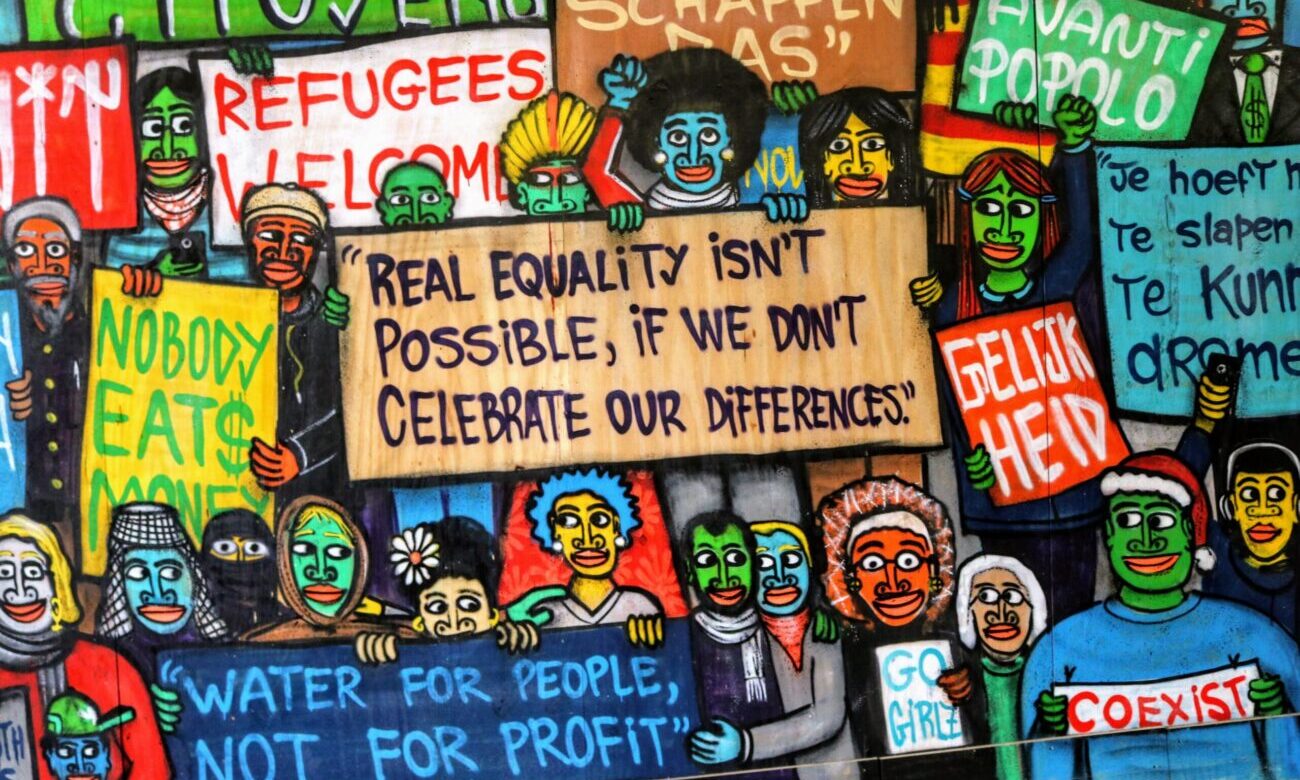World Refugee Day – An opportunity for learning
Avril Bellinger
Avril Bellinger is a social worker, academic activist and founder of Students and Refugees Together (START) in Plymouth, UK. She is an honorary associate professor in social work and co-author of The Strengths Approach in Practice: How it changes lives, (2022) Policy Press.
Reflecting on Refugee Week in Plymouth, UK, marking the importance of World Refugee Day on 20th July 2022, I recall the joyful gathering of adults and children at cultural kitchen, the cooking and eating together, sharing stories, hopes and achievements – a child’s pride in her certificate and her mother’s excitement and trepidation about a new career – staff and volunteers from different agencies in the city collaborating and building strength for the difficult times to come – students from social care, geography and arts sharing their learning about displacement and belonging – echoing the United Nations statement for World Refugee Day I truly ‘celebrate the strength and courage of people who have been forced to leave their home country to escape conflict, terror or persecution’. At the same time I am worried about our tendency to distance ourselves by ‘othering’ – labelling, demonising or glorifying people who have been forcibly displaced as a way of protecting ourselves from the realisation that this could be us.
The rise in numbers of refugees globally is a consequence of greed and entitlement and a failure of humanity. As ecological systems reach crisis point, the number of people forcibly displaced by land degradation, rising sea levels, and other environmental changes that render homes unsustainable for life, outnumber even those fleeing war and persecution. A belief in the positive value of economic growth is a myth intended to distract us, when in the richest countries on the planet more people are being excluded from the means to sustain home and life through their labour (Davies, 2019, Bruder, 2017). In the words of Arundhati Roy: ‘The wars of today are not aberrations but systemic, logical exercises to preserve a way of life whose delicate pleasures and exquisite comforts can only be delivered to the chosen few by a continuous protracted war for hegemony’ (2016).
I am shocked by the compassion-fatigue shown by wealthy countries like the UK, as the ‘welcome’ to refugees becomes increasingly conditional, as if some people were more deserving than others. This serious depletion of compassion and associated cavalier response to the imminence of planetary disaster means that this year’s theme ‘Whoever, Whatever, Whenever. Everyone has the right to seek safety’ is true for every one of us.
In twenty years of working alongside refugees in Plymouth, England, I have had the privilege of learning that people already displaced are our allies in understanding how to respond to the unthinkable. At START students on various professional courses including clinical psychology are supported to learn alongside refugees so that they are equipped for practice in the future. Using the strengths approach which underpins and informs everything we do, we see refugees not as a burden but as potentially high contributors in transition and encourage them to ‘dream big’. Our future depends on us all recognising that we already have what we need and learning to live differently. Anna Weick and Donald Saleebey articulated the following principles:
- Every individual, group, family and community has assets and resources to be used in reconstructing and redirecting their lives.
- Every individual and collectivity has the inherent capacity for wholeness, regeneration, healing and transformation.
- Every person and group has a fund of innate wisdom and health to draw upon in times of crisis and challenge.
- Everyone has the capacity for rebound and righting the trajectory of their development in the face of adversity and trauma.
- All individuals, families, communities and cultures have rhetorical, metaphorical, narrative tools to refashion and reformulate their understanding and interpretation of their situation and condition (Bellinger and Ford, 2022.16).
It is imperative that we all do what we can, where we are, with what we have, working both with refugees and other forcibly displaced people. Building alliances with dispossessed people fosters hope in an otherwise bleak situation, it reasserts the value of human and planetary resources beyond money and enables us to learn more about strategies for survival.
References
Bellinger, Avril and Ford, Deirdre (2022). The Strengths Approach in Practice: How it changes lives. Policy Press.
Bruder, Jessica (2017). Nomadland: Surviving America in the Twenty-First Century, W.W.Norton.
Cusack, John and Roy, Arundhati (2016). Things that can and cannot be said. Penguin.
Davies, Catrina (2019). Homesick: Why I live in a shed. Riverrun.

